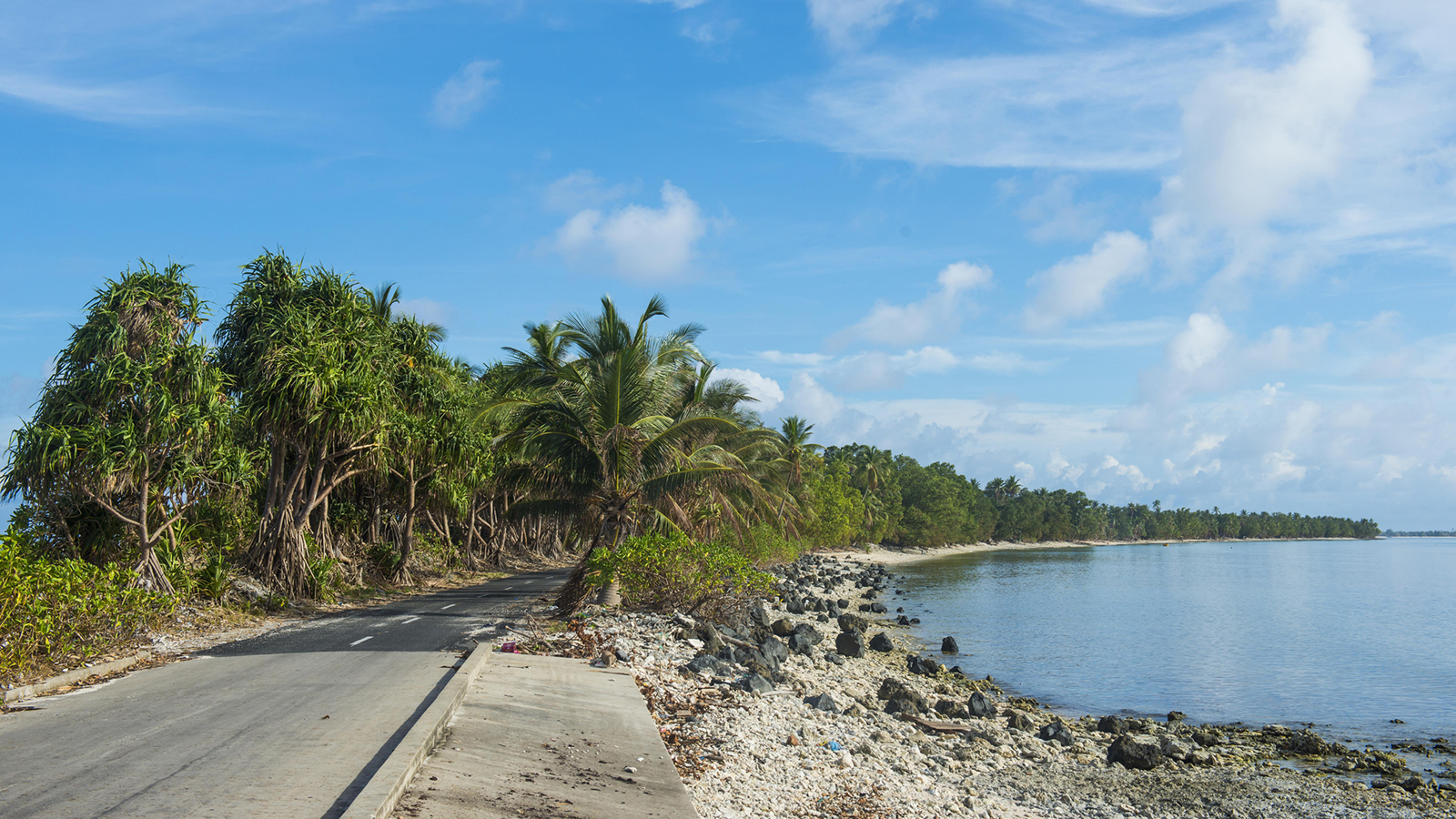Science
Discover the World’s Least-Visited Country: Tuvalu Awaits

The world’s least-visited country, Tuvalu, a remote island nation in the Pacific Ocean, recorded only 40 tourists in 2021. This small nation comprises nine islands and spans just 10 square miles (26 square kilometers), situated between Australia and Hawaii. Despite its stunning natural beauty, Tuvalu’s isolation and limited infrastructure keep it largely off the travel radar.
Tuvalu is located northeast of Fiji in the South Pacific, floating near the equator and surrounded by vast stretches of ocean. Its main island, Funafuti, serves as the gateway for visitors, with a modest international airport situated on a narrow strip of land. Despite its breathtaking beaches, vibrant coral reefs, and rich marine life, the country struggles to attract tourists due to its challenging access and minimal tourism services.
Challenges and Unique Beauty
Getting to Tuvalu is a significant hurdle for potential visitors. Only a few flights from Fiji Airways arrive each week, making travel to the islands difficult. Once there, accommodations are basic, with no luxury hotels available. Funafuti has only one main road, devoid of traffic lights, contributing to its unhurried atmosphere.
The lack of tourism promotion and awareness further complicates Tuvalu’s situation. Unlike popular destinations such as the Caribbean or the Philippines, Tuvalu does not benefit from a well-established tourism industry. Instead, its charm lies in its simplicity and the close-knit community that embraces traditional ways of life. Visitors can expect to savor local cuisine featuring ingredients like coconut, breadfruit, and seafood, while engaging with locals who speak Tuvaluan.
Despite being the least-visited country, Tuvalu plays a significant role in global climate discussions. With an average elevation of just 6.5 feet (2 meters) above sea level, it is among the nations most threatened by climate change and rising sea levels. The urgency for action regarding climate issues makes Tuvalu a poignant example in global conversations about environmental resilience.
Tourism and Environmental Concerns
Tuvalu is caught in a paradox: it seeks to increase tourism to bolster its economy while simultaneously confronting the dire threat of environmental change. There are fears that the nation could eventually vanish beneath the rising ocean. Yet, some see tourism as a potential means for resilience, allowing Tuvaluans to share their unique story and culture with the world.
For those intrigued by history, Tuvalu offers remnants from World War II, including American planes and bunkers from the Pacific theater. Nearby coral atolls and the Phoenix Islands, part of Kiribati, boast some of the most pristine diving spots globally, attracting a niche audience of eco-conscious travelers.
While Tuvalu ranks as the least-visited country, it is not alone in this category. The Marshall Islands, Solomon Islands, and Federated States of Micronesia also struggle with low tourist numbers due to factors such as political instability, geographic isolation, and lack of infrastructure. Interestingly, even North Korea, known for its restrictive tourism policies, attracts more annual visitors than Tuvalu.
As the world continues to develop and expand tourism infrastructures, Tuvalu remains a unique destination that offers a glimpse into a simpler way of life, where modern distractions are minimal, and traditional culture thrives. For those seeking an untouched paradise, Tuvalu presents an opportunity to experience a serene environment and a community dedicated to preserving its heritage, albeit under challenging circumstances.
-

 Lifestyle3 months ago
Lifestyle3 months agoLibraries Challenge Rising E-Book Costs Amid Growing Demand
-

 Sports3 months ago
Sports3 months agoTyreek Hill Responds to Tua Tagovailoa’s Comments on Team Dynamics
-

 Sports3 months ago
Sports3 months agoLiverpool Secures Agreement to Sign Young Striker Will Wright
-

 Lifestyle3 months ago
Lifestyle3 months agoSave Your Split Tomatoes: Expert Tips for Gardeners
-

 Lifestyle3 months ago
Lifestyle3 months agoPrincess Beatrice’s Daughter Athena Joins Siblings at London Parade
-

 World3 months ago
World3 months agoWinter Storms Lash New South Wales with Snow, Flood Risks
-

 Science4 months ago
Science4 months agoTrump Administration Moves to Repeal Key Climate Regulation
-

 Science2 months ago
Science2 months agoSan Francisco Hosts Unique Contest to Identify “Performative Males”
-

 Business3 months ago
Business3 months agoSoFi Technologies Shares Slip 2% Following Insider Stock Sale
-

 Science4 months ago
Science4 months agoNew Tool Reveals Link Between Horse Coat Condition and Parasites
-

 Sports3 months ago
Sports3 months agoElon Musk Sculpture Travels From Utah to Yosemite National Park
-

 Science4 months ago
Science4 months agoNew Study Confirms Humans Transported Stonehenge Bluestones









